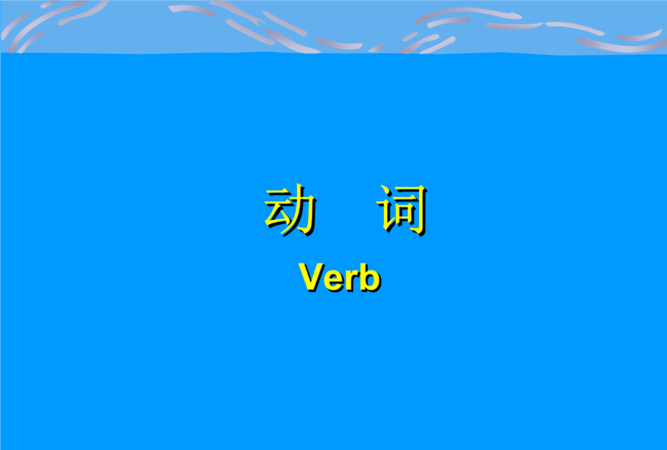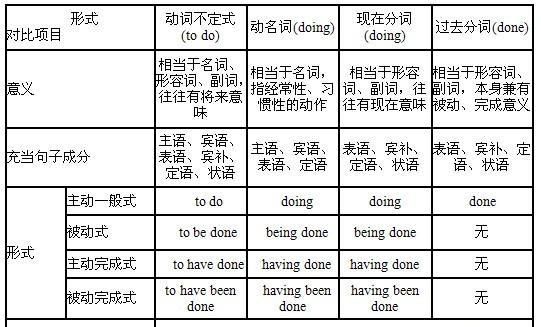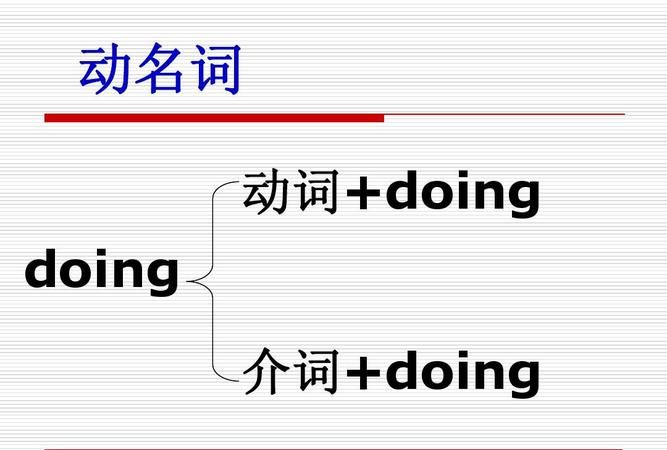本文目录
初中英语知识点归类(全部)所有的知识点
初中英语是一门非常重要的学科,学生一定要注意知识点的总结,下面我为大家总结了初中英语知识点,仅供大家参考。
英语句子成分知识点
1、主语:句子的主体,全句述说的对象。回答是“谁”或者“什么”。一般由名词、代词、不定式、动名词或从句担当,位于句首。
如:The boy needs a pen.
Smoking is bad for you = To smoke is bad for you
2、谓语:说明主语的动作或状态。回答“做(什么)”。由动词或系动词加表语担任,常置于主语后。
如:The train leaves at 6 o’clock.
She is reading.
3、宾语:表示动作的对象。回答做的是“什么”。一般由名词或代词担当,常置于谓语后。
如:He won the game.
初中英语表语重点知识点
用以表述主语的特征、状态、身份等。回答是“什么”或者“怎么样”。一般由名词或形容词担任,置于系动词或be动词之后。
如:He is a student. We are tired.
注意:除了be 系动词外,还有一些动词也可以用作系动词,
1)表感官的动词: feel, smell, taste, sound, look, appear, seem 等。
2)表转变变化的动词: become, get, grow, turn, go等。
3)表延续的动词: remain, keep, hold, stay, rest等。
初中英语转换法
(1)形容词→动词,如:dry(干燥的)→dry(弄干), clean(干净的)→clean(打扫,弄干净),等等。
(2)动词→名词,如:look, walk, rest, work, study, swim, go, talk等等。
(3)名词→动词,如:hand(手)→(传递),face(脸)→(面对)等等。
(4)形容词→副词,如:early→early, fast→fast等等。
(5)副词→连词,如:when(什么时候)→(当……时候),等等。
(6)介词→副词,如:in(到……里)→(在里面;在家),on(在…上)→(进行,继续)。
以上就是我为大家总结的初中英语知识点,仅供参考,希望对大家有帮助。

初中英语语法汇集整理 要全写吗
初中英语合集百度网盘下载
链接:***/s/1znmI8mJTas01m1m03zCRfQ
?pwd=1234 提取码:1234
简介:初中英语优质资料下载,包括:试题试卷、课件、教材、视频、各大名师网校合集。

初中英语语法大全
初中英语语法汇总
(一)
一.词类(Parts of Speech)
名词 英文名称The Noun(缩写为n.) 表示人或事物的名称 例词boy,clock,book等
冠词 英文名称The Article(缩写为art.) 用在名词前帮助说明名词所指的人和或事物。 例词a(an),the
代词 英文名称The Pronoun(缩写为pron) 用来代替名词、形容词或是数词 例词we,that,his,what
形容词 英文名称The Adjective(缩写为adj.) 用以修饰名词,表示人或事物的特征
例词 old,red,fine,good.
数词 英文名称The Numeral(缩写为num.) 表示数量或是顺序。例词 one,thirteen
first
动词 英文名称The Verb(缩写为v.) 表示动作或状态。例词sit,go,be(am,is,are)
副词 英文名称The Adverb(缩写为adv.) 修饰动词、形容词或其他副词。例词not
too,here,very
介词 英文单词The Preposition(缩写为prep.) 表示名词、代词等和句中其他词的
关系。 例词in,on,of,to,under.
连词 英文单词The Conjunction(缩写为conj.) 用来连接词与词、短语与短语或句
与句。 例词and,or,but.
感叹词 英文单词The Interjection(缩写为interj.) 表示说话时的喜悦、惊讶等
情感。 例词oh,hello,hi,er.
二.名词(Nouns)
1.总的说来,名词分专有名词和普通名词两类。
专有名词: 表示具体的人,事物,地点或机构的专有名称。
Lucy China 中国 Asia 亚洲 Beijing 北京 。
专有名词的第一个字母要大写。
普通名词: 表示某些人,某类事物,某种物质或抽象概念的名称。例如:
teacher 老师 tea 茶 reform 改革
普通名词又可进一步分为四类
1) 个体名称: 表示单个的人和事物。
house 马 car 汽车 room 房间 apple 苹果 fun 风扇 picture 照片
2) 集体名称: 表示一群人或一些事物的名称。
people 人们 family 家庭 army 军队 government 政府 group 集团
3) 物质名词:表示物质或不具备确定形状和大小的个体的物质。
fire 火 steel 钢 air 空气 water 水 milk 牛奶
4)抽象名词:表示动作,状态,品质或其他抽象概念。
labour 劳动 health 健康 life 生活 friendship友情 patience耐力
2.名词按其所表现的事物的性质分为可数名词和不可数名词。
可数名词(Countable Nouns)有复数形式,如:
an apple two apples a car some cars
不可数名词(Uncountable Nouns)一般没有复数形式.
抽象名词, 物质名词和专有名词一般是不可数名词。
sand 沙 sugar 糖
有少数名词即可作可数名词,也可作不可数名词,但含义不同。
glass 玻璃 glass 玻璃杯 paper 纸 paper 报纸,文件
名词的功能
名词在句中作主语, 宾语,介词宾语,宾语补助语,表语以及名词短语作状语。
The bag is in the desk. bag 作主语。
书包在桌子里边。
I washed my clothes yesterday. clothes 作宾语。
昨天我洗了我的衣服。
This is a good book. book 作表语。
这是一本好书。
We elected him our monitor. monitor作宾语补助语。
我们选他为我们的班长。
Mary lives with her parents. parents作介词宾语.
玛丽和她的父母亲住在一起。
He is a Party member. Party 作定语.
他是一名党员。
They study hard day and night. day and night作状语。
他们白天黑夜地学习。
3.可数名词有单数(the Singular Nunmber)和复数(the Plural Number)两种形式。
名词的复数形式(The Plural Form Nouns)的部分规则如下:
1) 一般情况下,在词尾加 -s. 例如:
bags,maps,pens,desks,workers
2) 以s,sh,ch,x等结尾的词加-es.例如:
buses watches boxes
3) 以ce,se,ze,(d)ge等结尾的词加-s.例如:
licences blouses oranges
4) 以辅音字母+y结尾的词变y为i再加-es.例如:
babies families
5) 名词以 -f 或 -fe 结尾的,把 -f 或-fe 变成 -ves.
bookshelves, wives, knives
注:英语中有些名词的复数形式是不规则的,需要一一记忆常见的有,
man - men woman - women foot - feet
tooth - teeth mouse - nice ox - oxen
sheep - sheep dear - dear fish - fish
英语中有些名词总是以复数形式出现。
scissors 剪刀 goods 货物 trousers 裤子 clothes 衣服 glasses 玻璃杯
4.名词的所有格(The Possessive Case of Nouns)
在英语中,名词的格有三个,主格,宾格和所有格。
它们的形式及其变化表示与其他词的关系。
实际上, 主格和宾格通过它在句中的作用和位置来确定。
The bird is in the tree. 鸟在树上。 bird 作主语, 是主格。
I saw a film yesterday. 昨天我看了一场电影。 film 作宾语,是宾格。
名词的所有格: 名词中表示所有关系的形式叫做名词所有格。
Lu Xun's book is worth reading.
鲁迅的书值得一读。
This is my father's room.
这是我父亲的房间。
名词所有格的构成
单数名词 加's 例词:Mike's father
以s结尾的复数名词 加' 例词:the teachers' room
不以s结尾的复数名词 加's 例词:men's women's
三、代词(Pronouns)
1.人称代词(Personal Pronouns)
第一人称单数主格I(复数We) 单数宾格me(复数us)
第二人称单数主格you(复数you) 单数宾格you(复数you)
第三人称单数主格he,she,it(复数they) 单数宾格him,her,it(复数them)
2.物主代词(Possessive Pronouns)
形容词性物主代词第一人称单数my(复数our)
形容词性物主代词第二人称单数your(复数your)
形容词性物主代词第三人称单数his,her,its(复数their)
名词性物主代词第一人称单数mine(复述ours)
名词性物主代词第二人称单数yours(复数yours)
名词性物主代词第三人称单数his,hers,its(复数theirs)
四、数词(Numeral)
表示数目多少或顺序多少的词叫数词,数词分为基数词和序数词。
表示数目多少的数词叫基数词;表示顺序的数词叫序数词。
基数词(Cardinal Numbers)
1 one 2 two 3three 4four 5five 6six
11eleven 12twelve 13thirteen 20twenty
21twenty-one 40fouty 100one hundred
五、动词(Verb)
一般现在时(The Simple Present Tense)
一般现在时表示现在的状态
如:He is twelve.She is at home.
表示经常的或是习惯性的动作.
如:I go to school at 7:30 every day.
表示主语具备的的性格和能力等
如:She like apple.They know English.
1.动词be(Verb to be)
肯定式I am......否定I am not....
肯定式You are...否定式You are not....
肯定式He/She/It is....否定式He/She/It is not....
疑问句和简略答语
Am I ....?
Yes,you are./No,I you are not.
Are you....?
Yes,I am./No,I am not.
2.There be结构
"There is/are+某物/某人+某地/某时"这样一种句型,大致相当于汉语
"某地/某时有某物/某人"的说法.句子的is/are和后面所跟的名词在数
方面必须是一致.
肯定式:There is(There's)a table in your room.
There are(There're)some pencils on the desk.
否定式:There is not(There isn't)any cats here.
There are not(aren't)any cats here.
疑问式和简略答语
Is there a ruler in your bag?
Yes,there is./No,there is not(isn't).
Are there any people in that house?
Yes,there are./No,there are not(aren't).
How many kites are there in the sky?
There are thirteen.
六、介词(Prepositions)
介词一般用于名词或代词前,表示该词与句子其他成分的关系.介词后面的名词
或代词称为介词宾语.介词和介词宾语一起构成介词短语.
本册课本出现的介词短语如下:
at: at home at school at six thirty
behind: behind the door/tree behind one's chair
beside: beside the door beside the house
from: from one to a hundred
in: in Row/Team/Class/Grade4
in one's school/grade/class/team/rom
in your desk/pencil-box/bedroom
in the picture in the same class in different classes
in English in the hat in the morning/afternoon
like: like this/that
near: near the window near the door
of: a picture of a classroom a map of China
the name of her cat the wall of their classroon
on: on the desk/chair on the floor on the wall on the bike
on the duty
to:(a quarter)to ten (go)to school/bed/work
under: under the desk/table under the tree/window under one's chair/bed
(1) 表示时间:
at: 表示某一时间点
如: at noon
on: 表示特定的日子
如: on Christmas
in: 表示一段不具体的时间
如: in the morning, in the Second world war
如表示在某一特定的早上、下午则用on
如: on a cold morning, on a hot afternoon, on Sunday morning
during: 表示期间内的某个时期
如: during the night, during the Second World War
for: 其后接表示一段时间长度的词
如: for three days
through: 表示在整个期间没有间歇
例: It snowed through the night.
till/until: 表示动作持续的终点
例:I studied hard till twelve o'clock last night.
by: 表示动作完成期限
例: I'll be back by five o'clock.
since: 表示某动作的起始点
例:I have studied English since 1990.
(2) 表示地点:
at: 表示较小的地点
如: arrived at the school gate
in: 表示较大的地点
如: arrived in Shanghai
for: 表示目的地
例: I'll leave for Shanghai.
above: 表示上面,上方,其反意词是below
over: 表示垂直上方,其反意词是under
例: The dog jumped over the table.
through: 表示穿过
如: through the forest
across: 表示平原上的跨越
例: I want to walk across the road.
七、句子的种类(Kinds of Sentences)
英语的句子按照用途可分为以下四类:
陈述句 用途是用来说明事实或说话人的看法 例句:I can see a map on the wall.
I think it's his.
疑问句 用途是用来提出问题. 例句:Are you Mr Green?
Can you find it ? How old are you?
祈使句 用途是用来表示请求和命令. 例句: Sstand up.Come in,please.
Let's play games.
感叹句 用途是用来表达强烈的感情. 例句:What a fine day it is!
How beautiful the flowers are!
八、一般疑问句和 特殊疑问句
一般疑问句子和特殊疑问句
一般疑问句(General Question)一般是指用Yes或No回答的疑问句。
例如:Is she at school today? Yes,she is/No,she isn't.
Can you see a pencile on the desk? Yes,I can./No,I can't.
Do you play football? Yes,they do./No,they don't.
特殊疑问句是以特殊疑问词开头的疑问句.
(二)
一.形容词和副词的比较级和最高级
(The Comparative and Superlative Degrees of Adjective and Adverbs)
大多数形容词和副词有三个等级:
1)原级,即原形。
2)比较级,表示“较……”或“更……一些”的意思。
3)最高级,表示“最……”的意思。
1.形容词和副词比较级和最高级的构成
(1)规则变化
单音节词和少数双音节词
一般在词尾加-er或-est
cold colder coldest
strong stronger strongest
fast faster fastest
slow slow slowest
以字母e结尾的形容词,加-r或-st
nice nicer nicest
large larger largest
重读闭音节词只有一个辅音字母时,应先双写辅音字母,再加-er或-est
big bigger biggest
thin thinner thinnest
hot hotter hottest
以“辅音字母+y”结尾的双音节词,先改“y”为“i”,再加-er或-est
easy esaier easiest
happy happier happiest
early earlier earliest
少数以-er,-ow 结尾的双音节词clever(聪明的)未尾加-er,-est
clever cleverer cleverest
narrow narrower narrowest
多音节词和部分双音节词
在词前加more或most
delicious more delicious most delicious
interesting more interesting most interting
easily more easily most easily
carefully more carefully most carefully
(2)不规则变化
good/well better best
bad/badly worse worst
much/many more most
little less least
far farther/further farthest/furthest
2.形容词和副词的比较级和最高级的用法
比较级:表示两者(人或事物)的比较
Mr King is taller than Mr Read
This mooncakes is nicer than that one。
The tractor is going faster than the bike。
最高级:表示三者或三者以上(人或事物)的比较,其中有一个在某一方面超过
其他几个时,用最高级。最高级的前面一般要加定冠词the。后面可带of(in)
短语来说明比较的范围。
Whose drawing is he best of all?
She is the youngest in the class.
The taxi is going ghe fastest.
Mr Qin is walking tje slowest of all.
注:在形容词和副词的比较级前,有时可以用much,a little等来修饰,
如:much better a little taller
二。数词(Numerals)(2)
序数词(Ordinal Numbers)
序数词表示事物的顺序,往往与定冠词the连用。
fist 1st twentieth 20th
second 2nd twenty-first 21th
third 3nd thirieth 30th
fourth 4nd thirty-ninth 39th
fifth 5nd fortieth 40th
sixth 6th fiftieth 50th
seventh 7th sixtieth 60th
eighth 8th seventieth 70th
nineth 9th ninetieth 80th
tenth 10th hundredth 100th
eleventh 11th one hundred and first 101st
twelfth 12th
三、冠词(Articles)
冠词是一种虚词,让在名词的前面,帮助说明名词的含义,
冠词分不定冠词(The Indefinite Article)
和定冠词(The Define Article)两种,a(an)是不定冠词。
a用在辅音之前,如:a road
a boy;an用在元音之前,如:an hour ;an old man等;the是定冠词。
1.不定冠词的用法
用于可数名词的单数形式前,指人或事物的某一种类。
Susan is a scientist.
Pass me an orange,please.
指某人或某事,但不具体说明何人或何物。
A boy is looking for you。
We work five days a week。
表示“一”这个数量,但数的概念没有one强烈。
We are going to have an English lesson tomorrow。
I have a mouth,a nose,two eyes and two ears。
用于某些固定的词组中。
a few ,a little ,a lot of ,a moment ago
2.定冠词的用法。
特指某些人或某些事物
Show me the photo of the boy。
The book on the desk is mine。
指双方都知

初中英语动词不定式的用法
初中的动词不定式没有
动词不定式专题练习
1. This company was the first ____ portable radios as well as cassette tape recorders in the world.
A. producing B. to produce C. having produced D. produced
2. The purpose of new technology is to make life easier, ____it more difficult.
A .not making B. not make C .not to make D. nor to make
3. Helen had to shout ______above the sound of the music .
A .making herself hear B. to make herself hear
C. making herself heard D .to make herself heard
4. I don’t know whether you happen_______ ,but I am going to study in the U.S.A this September.
A .to be heard. B. to be bearing C .to hear D .to have heard
5. The news reporters hurried to the airport, only ______the film stars had left.
A .to tell B .to be told C .telling D .told
6. You were silly not _______your car.
A. to lock B. to have locked C. locking D. having locked
7. The teacher asked us ______so much noise.
A .don’t make B. not make C. not making D .not to make
8. An army spokesman stressed that all the soldiers had been ordered _____clear warnings before firing any shots.
A .to issue B. being issued C. to have issued D. to be issued
9. I’d rather have a room of my own, however small it is, than_______ a room with someone else.
A. to share B. to have shared C. share D. sharing
10. The bank is reported in the local newspaper_________ in broad daylight yesterday.
A. robbed B. to have been robbed
C. being robbed D. having been robbed
11. A number of paintings in the castle are believed ________in a fire.
A. being destroyed B. having been destroyed
C. to be destroyed D. to have been destroyed
12. The meeting _______ next week is sure to be a great success.
A. to take place B. to be taken place
C. to have taken place D. being taken place
13. As a result of my laziness, I failed ________ my work in time.
A. and finished B. to finish C. and finishing D. to finished
14. I am sorry ______ written you a letter at the time.
A. to have not B. to not have C. not to have D. not having
15. Will you lend him a magazine _________?
A. to be read B. for reading C. to read D. he read
16. He could do nothing but _______for the bus _________.
A. wait, to come B. wait; come C. waiting; coming D. waited; came
17 .It is a problem that doesn't need ________ right now.
A. to solve B. solving C. being solved D. to be solving
18. There’s a man at the reception desk who seems very angry and I think he means _______ trouble.
A. making B. to make C. to have made D. having made
19. I remember _______him _______the bike needed __________.
A. hearing, saying, to repair B. to hear, say, to repair
C. hearing, say, repairing D. to hear, saying, to be repaired
20. --- You should have thanked her before you left.
--- I meant _________, but when I was leaving I couldn’t find her anywhere.
A. to do B. to C. doing D. doing so
21. Robert is said to __________ abroad, but I don’t know what country he studied in.
A. to have studied B. to study B. to be studying D. to have been studying
22. I’m gong to Xi’an next week. Have you anything __________ to your parents?
A. to take B. to be taken C. to be bought to D. to buy
23. when are they __________ in their plan?
A. hand B. handed C. to hand D. give
24. In such dry weather, the flowers will have to be watered if they _____________.
A. have survived B. are to survive C. would survived D. will survive
25. When we hurried to the station, there happened ________ no bus at that time.
A. to have B. to be C. having D. being
26. I lost my way in complete darkness and, _________ matters worse, it began to rain.
A. made B. having made C. making D. to make
27. At ________ time does the salesgirl get up late in the morning, though she is always too busy _________ a good rest.
A. no, to take B. no, taking C. any, to take D. one, taking
28. --Are you a student?
--No, but I used _________.
A. to be B. to was C. to do D. to be a
29. I stopped to listen, and my son seemed _________ himself _________ in the living room.
A. to enjoy, to shut B. to be enjoying, shutting
C. to be enjoying, shut D. to have enjoyed, having shut
30. With a lot of difficult problems _________, the newly-elected president is having a hard time.
A. settled B. settling C. to settle D. being settled
31. We’re leaving at six o’clock, and hope _________ most of the journey by lunch time.
A. to do B. to have done C. to make D. to have made
32. The study of the wild world may help to make the world easier _________.
A. understood B. to be understood C. to understand D. understand
33. Who will you get __________ the project for us?
A. design B. to design C. designed D. designing
34. It is said in Australia there is more land than the government know __________.
A. it what to do with B. what to do it with
C. what to do with it D. to do what with it
35. We are not allowed __________ outdoors with some other children.
A. playing B. to be playing C. to play D. be playing
36. Allen had to call a taxi because the box was _________ to carry all the way home.
A. much too heavy B. too much heavy
C. heavy too much D. too heavy much
37. She feels so strongly that each of us should have a role __________in making the earth a better place to live in.
A. to have played B. to play C. to be played D. to be playing
38. When I handed the report to John, he said that George was the person _________.
A. to send B. for sending it C. to send it to D. for sending it to
39. Do let your mother know all the truth, she appears _________ everything.
A. to tell B. to be told C. to be telling D. to have been told
40. There are five pairs ___________, but I’m at a loss which to buy.
A. to be chosen B. to choose from C. to choose D. for choosing
41. The problem is _________ difficult for us __________.
A. so; work out B. very too; to be worked out
C. rather too, to work out D. quite too, to work it out
42. ---Where should I _________ my application?
---The personnel office is the place __________.
A. send; to send it B. send for; to send it to
C. send for; for sending it D. send; to send it to
43. I’ve worked with children before, so I know what ___________ in my new job.
A. expected B. to expect C. expects D. to be expecting
44. I feel it is your husband who ___________ for the spoiled child.
A. is to blame B. is going to blame C. is to be blamed D. should blame
45. Can you imagine the questions I had __________ our teacher?
A. asked B. to ask C. asking D. ask
46. Who did you _________ the wall yesterday?
A. have painted B. have paint C. have to paint D. have painting
47. ---What’s the matter with John?
---He didn’t pass the test but he still ___________.
A. hopes so B. hopes to C. hope it D. hope that
48. Much attention should be paid ____________ people’s living conditions.
A. in improving B. to improve C. improving D. to improving
49. ___________ that evening was due to his ill health.
A. He failed to come B. That he failed to coming
C. His failure to come D. His failure in coming
50. I would love _______ to the party last night but I had to work extra hours to finish a report.
A. to go B. to have gone C. going D. having gone
51. My family considers ________ a computer, which is considered ________ a great help in our work and study.
A. to buy; to be B. buying; being C. to buy; being D. buying; to be
52. With the plane _________ in ten minutes, all the passengers on board were asked to turn off their mobile phones.
A. taken off B. taking off C. to take off D. would take off
53. Thank you for all the trouble you’ve taken _________ me.
A. to help B. with to help C. in helping D. of helping
54. He is believed ________ the college exam, for he is now studying very hard now.
A. to pass B. to have passed C. pass D. that he can pass
55.--- Will you have anybody _________ the flowers?
---- Yes, I’ll have the flowers _________.
A. plant, planted B. to plant, planted
C. plant; to be planted D. to plant , plant
56. They are looking forward with hope________ from you soon.
A. to hearing B. of hearing C. hearing D. to hear
57. Busy translating a book, he couldn’t help _________ the article.
A. write B. writing C. wrote D. written
58. Zhou Lan doesn’t have to be made__________. She always studies very hard.
A. learn B. to learn C. learning D. learned
59. ________this cake, you’ll need 2 eggs, 175 g sugar, and 175 g flour.
A. Having made, B, Make C. To make D. Making
60. I feel it an honour _________ to speak here.
A. to be asked B. to ask C. having asked D. asked
1---10 BCDDB BDACB 11---20 DABCC ABBCB 21---30 ABCBB DAACC
31-40 BCBCC ABCDB 41—50CDBAB BBDCB 51—60 DCAAA AABCA
莲山课件 原文地址:***/shti/gaoer/7980.htm

以上就是关于初中英语动词课件学科网 ,初中英语知识点归类(全部)所有的知识点的全部内容,以及初中英语动词课件学科网 的相关内容,希望能够帮到您。

